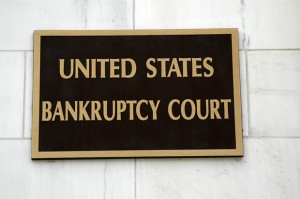 In Chapter 13 bankruptcy cases debtors file a plan to repay creditors over three to five years. Creditors are paid differently depending on the class of creditor. Secured creditors are paid in the plan if the debtor elects to include them. Priority creditors, such as recipients of child support arrears and the IRS, are paid in full in the plan. Unsecured creditors are paid only if the debtor has disposable income or nonexempt property.
In Chapter 13 bankruptcy cases debtors file a plan to repay creditors over three to five years. Creditors are paid differently depending on the class of creditor. Secured creditors are paid in the plan if the debtor elects to include them. Priority creditors, such as recipients of child support arrears and the IRS, are paid in full in the plan. Unsecured creditors are paid only if the debtor has disposable income or nonexempt property.
Debtors file a means test to determine their ability to pay unsecured creditors. A means test calculates average income and then subtracts standard IRS deductions from this average. If there is money left over then the debtor has disposable income and must pay unsecured creditors. In Chapter 13 bankruptcy, unsecured creditors can get paid in full, in part, or not at all. It all depends on the debtor’s disposable income. If a debtor’s income increases prior to confirmation then the means test is adjusted and their ability to pay increases as well.
After confirmation getting a raise is treated differently. A new means test is not created. Instead, the trustee will consider changes in the debtor’s circumstances. If the debtor’s net monthly income increases $500 a month then their payment will most likely also increase $500 a month, unless the debtor can amend their budget to show that they need the money. It isn’t enough to come up with additional monthly expenses showing why the money is needed. The debtor must show that these expenses are reasonable and necessary.
In practice, the debtor doesn’t usually have to present proof of expenses. Trustees have thousands of cases and are too busy to require proof of every line item on a budget. If the expenses are reasonable based upon the household size of the debtor, then the trustee most likely will not object. If there are unusual expenses or unusually high expenses then the trustee may require additional documentation.